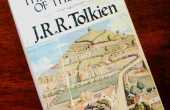C8lin
A critical fan, especially of the fantasy genre.
Junior Contributor II
- Lurker
- Sharp-Eyed Citizen
- ?
- Articles
1 - Featured
0 - Comments
8
- Ext. Comments
8 - Processed
2 - Revisions
2
- Topics
3 - Topics Taken
1 - Notes
12
- Topics Proc.
2 - Topics Rev.
0
- Points
224 - Rank
X - Score
120
Latest Articles
Latest Topics
Use of Color in LiteratureHow has the use of color in literature changed, especially in more recent works? Our tv shows and movies are closely edited, digitally graded, and dominated by blue and orange. We over-edit our "candid" photos, dimming the colors to look retro or cranking up the contrast. Do we see a similar trend in written descriptions? Has the symbolism behind colors changed? Has the use of certain color symbolism been reduced as the result of changing trends? As our literature becomes divided into increasingly smaller genres and subgenres, is the use of color similarly divided? Thrillers will always be "darker" than romances, of course, but are there other trends in symbolism, shades, etc?
|
Is the BBC Sherlock Holmes Becoming a Soap Opera?Discuss the current direction of the show, especially its later seasons and their emphasis on Sherlock and Watson's personal lives. Arthur Conan Doyle's character has been successful for so long and undergone many adaptations because of the clever use of the powers of deduction to solve mysteries that boggle lesser minds. Is the BBC show wandering from its origins? Is that something that contributes to its success and popularity, or will it trip it up if it continues?
|
The Value of AnimeWhile essentially escapist in nature, entertainment (especially fiction) has often been defended by its writers as having further intrinsic value. What draws people to anime? What is Western TV doing to emulate it? What gives anime its unique value as a genre? Or is it merely entertainment and has no worth beyond the superficial distraction of fan service? Edit 9/8/16 for grammar
|
Latest Comments
| Disney and the Perils of Adaptation | |
Modern fantasy owes a great deal to Tolkien for re-popularizing fantasy for both children and adults. He not only modeled the elements of RPG such as characters, creature types, plot, and world building, but also themes such as good vs. evil that are apparent especially in early games. Nice article! | The Influence of J.R.R. Tolkien on Modern Video Gaming |
Interesting article. Sometimes I wonder, though if we take too much agency way from young girls, denying their ability to recognize fantasy from reality (a bit sexist on our part) and their ability to recognize that being kind is a good behavior separate from any so-called reward. | Fairytales and Feminism: "I Don't Wanna be Like Cinderella" |
This article is a nice explanation and critique of the anime harem genre as it relates to the male viewer, but I would be interested in hearing more about the genre’s female audience. At first glance, the objectification and categorizing of women appears to be “fanservice” for the male viewers, but then why do women contribute to these’s shows popularity, even when the show is not a reverse harem? | Harem Anime and Manga - Expectations vs. Reality |
Great article! | Clarifying Current Understandings of Fairytales: The Princess or the Goblin? |
What about characters like Aragorn from Tolkien’s LOTR (the book)? He is a typical romantic hero (old usage of the word “romantic”) who is superior in degree to other men and his environment (Picturing Tolkien 223). His role in the books is as a character that the reader admires and aspires to be like. The flawed hero popular today is considered “low mimetic mode” where he is not superior to either other men or his environment. Kayla Wiggins argues in her article “The Art of the Story-Teller and the Person of the Hero” that character flaws in a hero actually cause us to feel superior to the hero and NOT to identify with him/her. She writes, “the effect is not to bring us closer to these characters but to shove us further away. We can’t know them with the fundamental recognition that is part of our primal consciousness, the part of ourselves that reaches out to myth…as essential truth” (quoted Picturing Tolkien 223). | Exploring The Hero's Journey: A Writer's Guide |
I agree with you to an extent. Books and films are different and those differences need to be taken into account in any discussion about them. However, those differences are important because they call into question the trends of belief in our society. How characters are changed reveals values of both film makers and audiences. Film makers chose to adapt a book. Audiences should be expected to take that into account, and to think critically about the changes that were made. | How 'By the Book' Should Literary Adaptations Be? |
Great article! Very fair. Personally, I think someone who has spent significant time with a book both critically and as a fan (the writer, ideally) ought to be included in the writing team for film adaptations. Maybe then catastrophes like The Last Airbender and The Lightning Thief movies could be avoided! On the other hand, the movie Ella Enchanted turned out really well, even if it is almost nothing like the book. | How 'By the Book' Should Literary Adaptations Be? |

I saw the Black Cauldron as a kid after I read the books (thanks to my mom’s insistence). As a result, I was extremely disappointed in the movie. I remember being horrified when Gurgi died and indignant when he returned to life. I still think that element undermines the theme, even if it makes the story end more happily.
Now, I think I should watch the film again. I enjoy different things about movies as an adult, and I remember the look of it made an impression on me.
Thanks for the article!